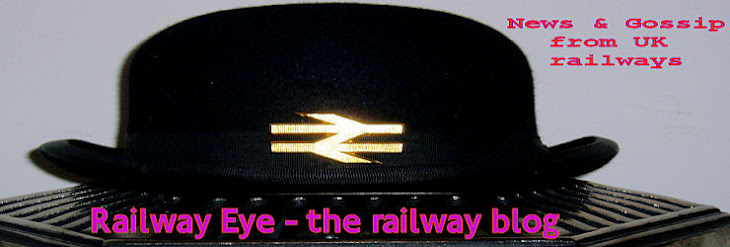This from Ithuriel...
In an article in the Sunday Express, Stagecoach CEO, Martin Griffiths, launched his Chairmanship of the RDG (What that? Ed) with a fighting article headed: 'Railways are still on track'.
No, it wasn't a riposte to busway conversions, but a paen to the newly nationalised railway (Shurely 'triumph of Privatisation'? Ed)
Martin showed his Finance Director background with this statistical claim:
"Train companies last year switched from being net recipients of Government support to net contributors. Overall industry subsidy per journey is lower than or the same as in six of the 12 years leading up to privatisation."
Good news indeed!
But what's this?
Note that Mr Griffiths is comparing 'now' (after 20 years of privatisation) with 12 years then, conveniently ignoring the post Railtrack years when subsidy was indeed four to five times BR at its best (Where is this going? Ed).
Griffith's comparison is also based on passenger journeys not passenger kilometers.
Since Clapham Junction to Waterloo and Kings Cross to Aberdeen are both 'journeys', the average cost measure is meaningless (Got you! Ed).
So what about comparing cost per passenger kilometre?
In 1982, before the revival of BR's fortunes under Sir Bob Reid, the subsidy per passenger kilometre at today's prices was 8.1p.
In 2006-07, when subsidy peaked at £6.3 billion - three times BR's 1982 subsidy, this equated to 15.8 p per passenger km!
Nice try. But sadly, no cigar!
Update: This from The Horn of Plenty...
Shurely it was Sir Robert Reid who revived BR's fortunes, paving the way for Shell's Sir Bob later?
On a more serious point, do we honestly think that we were at a sustainable level of spend in 1982, the era before Clapham, Hidden, Hatfield, DDA, Interoperability, Climate Change Levy, Pension Protection Levy, TPWS, GSMR, etc...?
Hopefully we are now where Sir Robert may have wished us to be, with the Government treating:
"... the network according to its importance to the nation rather than its financial value..."
Where "...safety must be 'top of the agenda': the only answer [is] high standards, efficient systems and constant vigilance."
Does anyone on today's railway really believe that our old nationalised industry could have delivered this?
